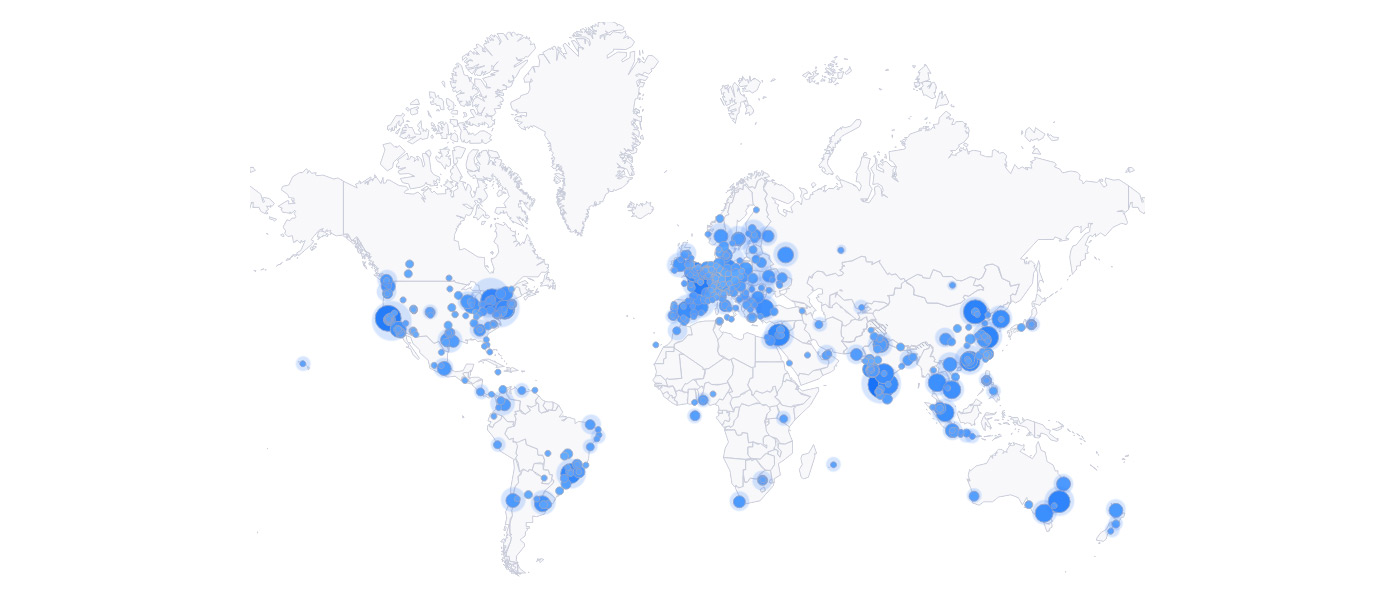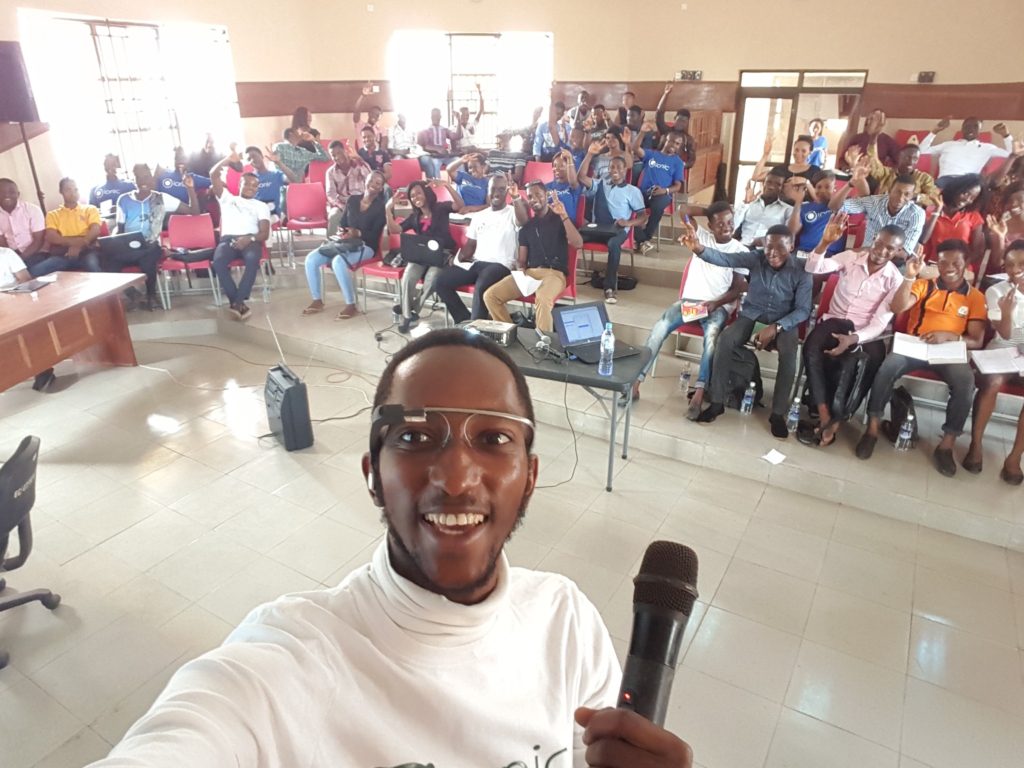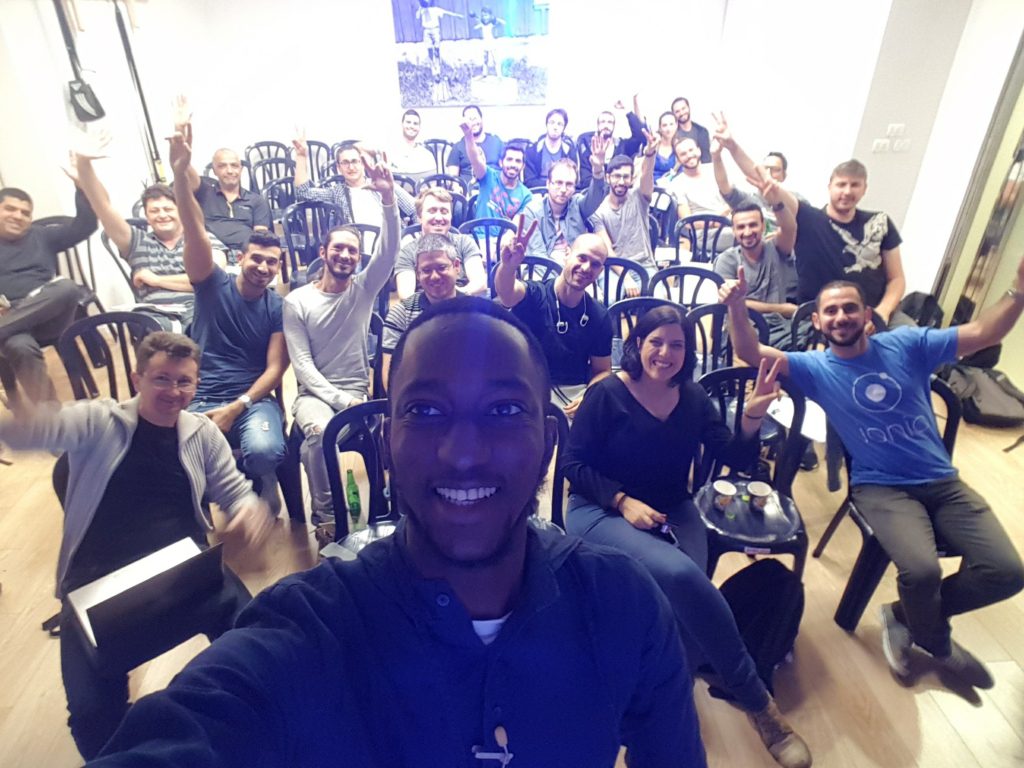Ionic’s Diverse Worldwide Community


Sani Yusuf is a freelance Ionic developer and the co-organizer of Ionic UK, one of Ionic’s largest regional groups.
The first thing a skeptic might ask about Ionic is how the company has achieved its impressive stats (over 27k Stars on Github, top TypeScript project on the web, and over 3 million apps started from the Ionic CLI). How did a small team build a technology that has shaken the mobile development world since its 2013 launch, resulting in apps with global recognition, like Sworkit and Untappd?
I believe the answer lies in Ionic’s vibrant community of people from different backgrounds working together to solve a shared problem. There are over 100 Ionic meetup groups spanning six continents. Ionic’s Slack group has almost 10,000 users, the Ionic Stack Overflow and Ionic Forum confirm how active the Ionic community is.
In December 2015, I set off on a personal tech travel mission, part of which was to reach out both in person and virtually to as many Ionic communities as I could. I was keen to see what people were doing with Ionic, so that I could learn and help collaborate. In this post, I’ll share some of the things I learned during my travels.
Diverse Ionic Communities
I started my travels in Nigeria, which happens to be the country I am originally from. I had the pleasure of launching the very first Ionic Nigeria Meetup held in Lagos. I also travelled to two universities and spoke at the ForLoop meetup in Abuja, a leading meetup group that organizes events around the country. I saw people solving unique problems with Ionic that were very location-centric.


For example, I met a group of developers creating an app called Verge App, a sales/invoice record app for small businesses in Nigeria. They wanted to enable retailers to order stock refills from their suppliers when their stock was running low and bill users based on how much sales revenue the users had generated. Due to the relatively poor Nigerian internet service, in comparison to that of Europe and America, they found it difficult to obtain information from their Verge app. They wanted to be able to update prices of products, so when the user of the app wanted to order new stock from his supplier, he would be invoicing with the most up-to-date prices, but poor connectivity made that difficult. Also, because they bill users based on sales made within the Verge app, they needed a way to record each sale made, even without an active internet connection, since most of the app’s users might not have a working internet connection.
Their solution was to send and receive their required information via SMS Cellular services, instead of via Internet Data, up to while an SMS server API intercepted and provided the correct response. They planned to use a Cordova plugin called the Cordova SMS plugin that allows developers to send and intercept SMS messages in the background. With this SMS plugin, the developers could query the server via SMS for updated prices, get back the response via SMS, and update the prices, all without user action or internet data. This solution might seem tiring to the typical person in the Western world, where data services are pretty good, but in Nigeria, where data service isn’t as guaranteed, this turned out to be a pretty great solution. Later, I was contacted by Alessio Delmonti, the organizer of Ionic Italy, who had watched one of my talks about this smart solution and told me about his startup, WIT APP (Without Internet APP), an SDK that allows communication with APIs via SMS.
Another community I directly interfaced with was the Ionic Israel community. I was in Israel for the Angular UP conference speaking about Ionic, so I decided to reach out to the Ionic Israel meetup group to see if we could organize an impromptu meetup for people who didn’t make it to the conference. In three days, we had set up a meetup alongside the Angular JS-IL group and had almost 50 people signed up. The meetup was a refresh of my talk at the Angular Up conference, which I’ll discuss a bit later in this post.
The Israeli community is very collaborative, and I met people building cool stuff and also provided feedback to the Ionic team. One Ionic app that impressed me was the NoSolo app being developed by a company for which one of the Ionic Israel organizers works. NoSolo is a social activity finder app that lets users explore things around their locality and get involved.
Ionic is a community-focused company, and Africa and the Middle East are some of the world’s fastest-growing economies. The app builders of tomorrow are in these emerging markets, and seeing the communities in these markets first-hand made me believe that Ionic will has a bright future, due to its heavy integration with the community.
Roundup/What’s Next
I’m going to continue my Ionic evangelism this year, and I’m already billed to travel to different cities. This year, I’ll be looking to work directly with Ionic community leaders, especially those in Europe to organize more community events. I’m also working on more blogs, books, and video courses (both free and premium material) for the community. If you are a community leader, feel free to reach out to me for any help, and I will also be reaching out to you.I always dedicate a good amount of time weekly to answer people’s questions.
I made the decision to make my social media, especially my Twitter open, so people can reach out and ask questions. Not only is this rewarding, it also keeps me up to date on the latest quirks and are aware of the most creative solutions. I know different countries use different platforms, so I’m online everywhere @saniyusuf, although I primarily use Twitter.
I’m currently working on a series Ionic By Component, where I break myths about different Ionic components. You can visit my blog at http://saniyusuf.com.


